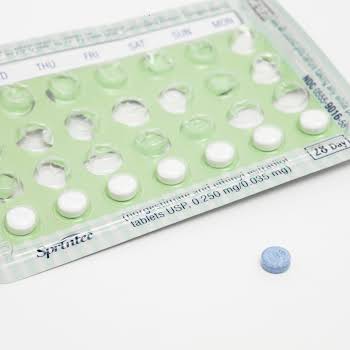By Lauren Heskin
05th Nov 2020
05th Nov 2020
Despite decades of research into the connections between HPV and cervical cancers, as well as the HPV vaccine, there’s still confusion around it.
In the last week Vicky Phelan revealed that she is seeking further treatment options as her cancer has begun to grow back. Vicky Phelan has been an inspiring and utterly heroic voice through every stage of Ireland’s CervicalCheck scandal, fighting her own cervical cancer, all the while putting the women of this country and their needs at the top of her list.
Ever since the introduction of the HPV vaccine for women under the age of 23 in 2010 and the desperately sad CervicalCheck scandal has unfolded, there’s been much public conversation around HPV and cervical cancer. Despite this, research carried out by Behaviour & Attitudes and commissioned by MSD Ireland, found 75% of people do not fully understand what HPV is and only 2% of the population are aware that HPV “is in fact extremely common”.
So, we thought it was time to take a deep dive to find out what you need to know about HPV.
What is HPV?
According to the HSE website, HPV stands for human papillomavirus virus. It’s an incredibly common virus, transferred sexually or through other skin-to-skin contacts. About 80% of people will have HPV at some point in their lifetime.
But HPV causes cervical cancer?!
There are more than 100 different strains of HPV. Only seven of these are considered “high risk” strains as they cause most HPV-related cervical cancers. However, even within these seven highlighted strains (16,18, 31, 33, 45, 52 and 58), there are varying levels of potency. Strains 16 and 18 are considered the most aggressive, causing about 70% of HPV-related cervical cancers.
I heard genital warts are a sign of HPV?
Yes, both genital and common warts are a symptom of HPV. Two strains of HPV have been shown to cause genital warts (6 and 11) but both are considered “low-risk” for cervical cancer. However, if they are causing you any discomfort or embarrassment, you should see a doctor.
So what exactly is the HPV vaccine?
The current HPV vaccine, known as the Gardasil 9 vaccine, is an injection usually in the arm. It protects from nine types of HPV: 6, 11, 16, 18, 31, 33, 45, 52, and 58. Strains 6 and 11 are shown to cause 90% of genital warts, while the other seven are considered high-risk strains for causing cancer.
I got the vaccine, so that means I won’t get HPV, right?
No, the vaccine only protects you against these nine strains.
Then what exactly does the HPV vaccine do?
The Gardasil 9 vaccine is effective because it prevents the HPV virus from forming precancerous lesions on the cervix, to which most cases of cervical cancer are linked.
How do I know if I have HPV?
The only way to diagnose HPV is through visible warts or an abnormal smear. However, because your immune system will clear HPV in 90% of cases, it can often be hard to tell if you still have it. An abnormal smear does not mean you have a high-risk strain of HPV either, it just means you might have a strain, so don’t panic.
What if I have abnormal smear results?
If there are high-grade changes on the smear, your doctor will refer you for a biopsy to see if there are any abnormalities or lesions. They will be able to test what strain of HPV is causing these. Having lesions does not mean that you have or will have cervical cancer, although it does increase your risk of it. HPV lesions, particularly if it’s one the seven high-risk strains, can develop into cancer over time.
What if my smear was abnormal but the biopsy came back clear?
In this case, you might have one of the lower-risk HPV strains, which your immune system will most likely take care of by itself. Over 70% of HPV infections are naturally cleared within the first year of infection and over 90% of infections are cleared within two years. Your doctor will likely recommend you get a smear every 12 months.
I heard that a specific diet can help clear my HPV?
Like most things, if you are eating healthily and exercising regularly your immune system will be high functioning and better able to attack the HPV strain. However, this is a long-term approach to your overall health, no food or lifestyle changes have been linked to clearing HPV.
How do I prevent getting HPV?
Like many sexually transmitted infections and viruses, using a latex condom and reducing the number of sexual partners you have will reduce the likelihood of getting HPV. But again, most HPV strains are relatively harmless so don’t get spooked. Getting your regular cervical smear test is extremely important in the early detection of cancerous or precancerous cells.
Can men have HPV?
Yes absolutely, men can have HPV. HPV causes about 40% of throat cancer, which predominantly affects men, it causes 80% of anal cancer in men and women and this rises to about 95% in men who have sex with men (MSM). It also causes about a third of penile cancers in men. The vaccine is publically available to MSM (HIV-ve and HIV+ve) up to 45 years of age at any sexual health clinic.
Can I get my child vaccinated?
From September 2019, boys and girls in the first year of secondary school will be vaccinated against HPV. The vaccine will be distributed in school free of charge and will help to limit the spread of the four strains of HPV as well as prevent HPV-related cancers. Children are vaccinated at this age as the vaccine responds best if it’s given before a person becomes sexually active.
To find out more about HPV and its links to cervical cancer, visit these websites: hpv.ie / hse.ie / hpse.ie
Featured image: Photo by Bewakoof.com Official on Unsplash
Read more: Roald Dahl’s letter to anti-vaxxers following his daughter’s death
Read more: Confessions of a former anti-vaxx parent
Read more: Tributes paid as HPV campaigner Laura Brennan passes away























